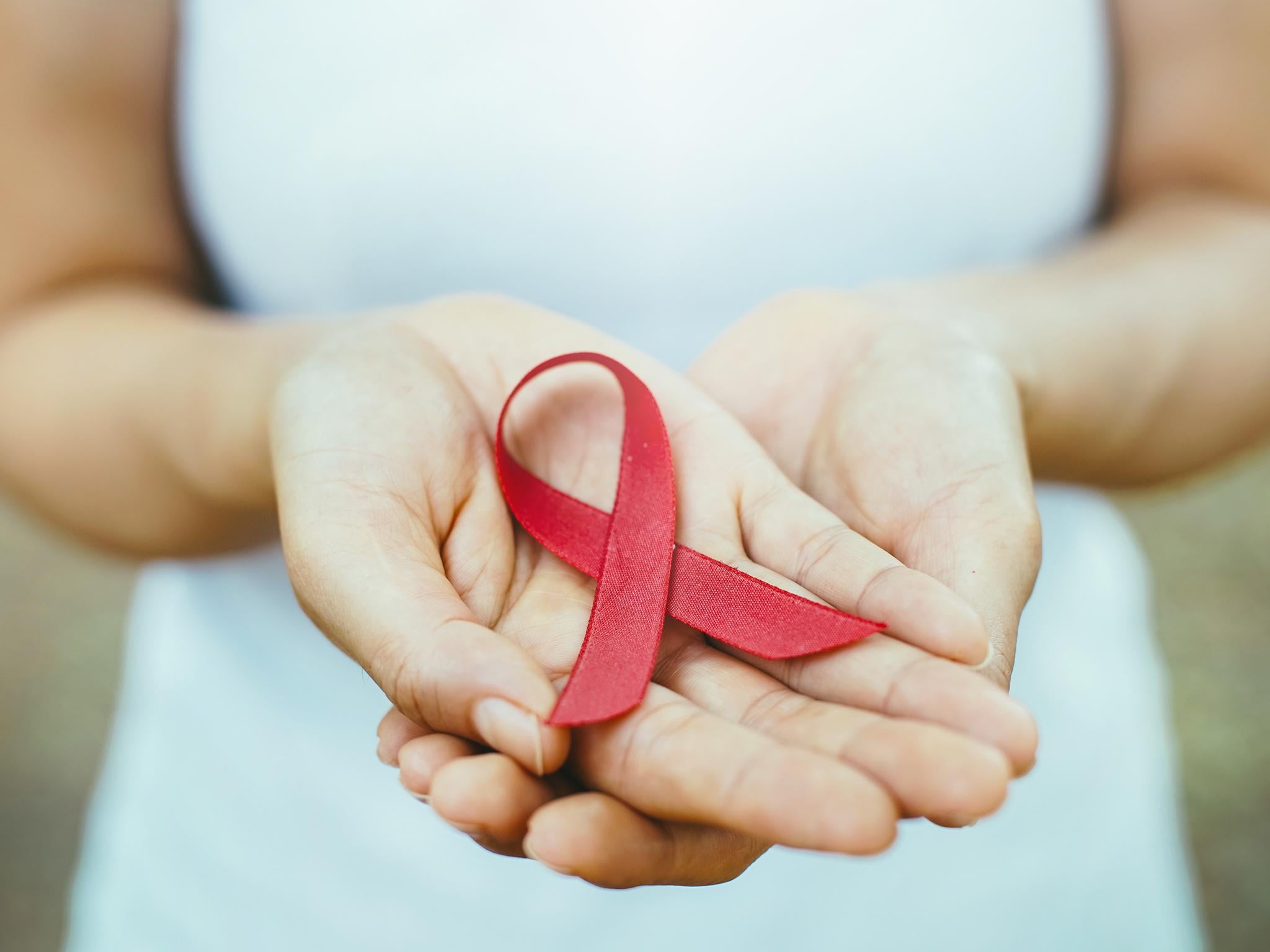AIDSfree: London looks to stop the stigma and halt new HIV cases by 2030
But Professor Anderson warns that we still ‘have the stigma around HIV to tackle. People are still very fearful of an HIV diagnosis. At the moment that’s a huge roadblock’

Your support helps us to tell the story
From reproductive rights to climate change to Big Tech, The Independent is on the ground when the story is developing. Whether it's investigating the financials of Elon Musk's pro-Trump PAC or producing our latest documentary, 'The A Word', which shines a light on the American women fighting for reproductive rights, we know how important it is to parse out the facts from the messaging.
At such a critical moment in US history, we need reporters on the ground. Your donation allows us to keep sending journalists to speak to both sides of the story.
The Independent is trusted by Americans across the entire political spectrum. And unlike many other quality news outlets, we choose not to lock Americans out of our reporting and analysis with paywalls. We believe quality journalism should be available to everyone, paid for by those who can afford it.
Your support makes all the difference.The HIV epidemic in London could be halted in the next 12 years if everybody who has the virus is diagnosed and takes treatment, a leading doctor said on Monday, as The Independent and Evening Standard launched our Christmas appeal.
Breakthroughs in medicine mean that those on effective HIV drugs are now unable to pass it on, making testing for HIV “crucial” to “breaking the epidemic chain”.
HIV consultant Professor Jane Anderson said the capital is working towards making sure there are no new infections by 2030. “We as a city are committing to zero new infections by 2030 and zero preventable deaths,” she said. “It is an achievable goal. We have seen a dramatic fall in new infections in this city. It is teaching us that this goal is possible.”
Professor Anderson, director of the Centre for the Study of Sexual Health and HIV at the Homerton Hospital in Hackney, added: “Effective treatment both keeps people well and also stops people from being infectious. This will break the epidemic chain. It can make sure the epidemic gets stopped in its tracks.”
Latest figures from Public Health England show a marked decline in new diagnoses of HIV in London. There were 1,572 people newly diagnosed with HIV in the city in 2017, a 21 per cent fall from 2016.
New diagnoses in the UK as a whole have been declining since their peak in 2005, falling 17 per cent from 5,280 in 2016 to 4,363 in 2017. The country has also achieved the UN’s “90-90-90 targets” to end the Aids epidemic, with 92 per cent of people living with HIV diagnosed, 98 per cent of people diagnosed receiving treatment, and 97 per cent of people receiving treatment having an “undetectable viral load”, with levels of virus in the blood so low it cannot be passed on.
We have the stigma around HIV to tackle. People are still very fearful of an HIV diagnosis. At the moment that’s a huge roadblock
Professor Anderson said: “90-90-90 is only the beginning. We still have people living in this city unaware of their HIV infection. There are still people who are unaware of the risks, who are not getting these messages.”
She said London has chosen to go “further and faster” by also committing to “zero HIV-related stigma and to improving the quality of life of people living with HIV”. She warned: “We have the stigma around HIV to tackle. People are still very fearful of an HIV diagnosis. At the moment that’s a huge roadblock.”
Currently 38,600 London residents are living with HIV, according to Public Health England. The borough of Lambeth has the highest rate in the country, with 15 residents per 1,000 diagnosed with the infection. The second highest rate is Southwark, with around 12 per 1,000.
Although the first port of call for an HIV test is often a sexual health centre, experts say many with undiagnosed HIV could be reached in other “routine settings” such as a GP clinic. Professor Anderson said testing at home through self-test kits available online is also an option. Experts say medicine to prevent HIV-negative people acquiring the infection (pre-exposure prophylaxis) is also making an impact, but currently only those involved in a national trial benefit from NHS-funded Prep treatment. Professor Anderson said making the drug more available, plus promoting the use of condoms, was also important in the battle against HIV. She added: “We cannot take our foot off the pedal now.”
Money raised from public donations through the AIDSfree appeal will be used to support the Elton John AIDS Foundation projects in six key cities around the world (London, Nairobi, Atlanta, Kiev, Delhi and Maputo). Through UK Aid Match the UK government will double public donations up to £2m to be spent across projects in Maputo and Nairobi
Join our commenting forum
Join thought-provoking conversations, follow other Independent readers and see their replies
Comments